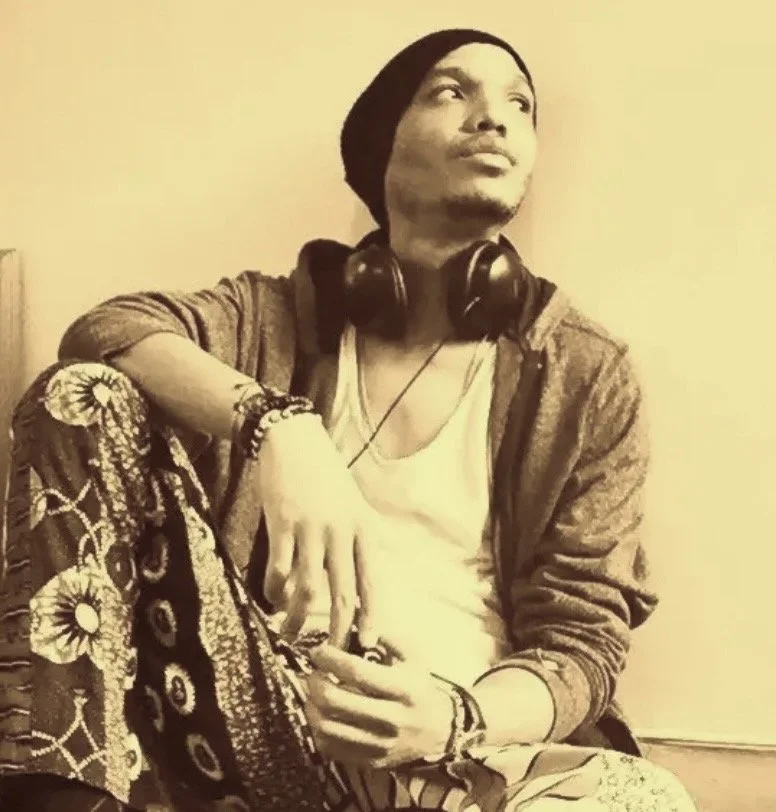The rain had stopped and dusk settled in the cracks of Joburg. From my office window in the city centre, I watched people pour out of trembling stalls back onto the streets into pools of light and after-rain.
Vika phoned me while I was still at the office and told me she had climbed to the rooftop of our new apartment building. She'd grown tired of looking at the city from our window. I feel like a moth, she said. Boxed in. The walls of closed windows are keeping me from touching the light. I stayed quiet. It had been three years to the day since she started chemo. I remembered how the lace wig she ordered online from Light in the Box didn’t fit. She had her mother re-tailor it.
I think we should visit the cellars, she said. She was talking about the basements seized by churches. The name conjured up the idea of storm cellars, she once admitted. The notion that shelters and refuge could exist beneath the city. Did you hear that six of the forty-nine shady churches were closed in last week's JMPD raid? she asked.
I read about it in a street poster around our corner two mornings before, but I told her that I didn’t know.
Is it even right to have a church in the basement?
I didn't respond. I closed my eyes instead and listened for the light within. In the quiet depths of regret was where I saw her whole.
She told me she was pressed against the wind on the rooftop, and that it rubbed cold against her face like a pane of glass. That the tea in her hand was bitter and earthy and, although she put in two lumps of sugar, she could still taste the rawness of its cured leaf. I reckoned it had gone cold, too, but knowing her, she drank it anyway.
I remained quiet, silenced by the thoughts of all I should have given her and a body of memories I could almost touch. I felt the warm whisper of her lips onto mine. And while I lingered in the before time—before she felt a small knot in her breast, before the misdiagnosis at Joburg Gen, before the crippling pain, before she would go home to her mother—I heard a faint hum and cry of praise and worship on the phone muffled by her battle to breathe and pronounce the number of times the church below invited us.
We never went.
The cellars are flooded again, she said.
I knew that the charismatic priest and his impassioned congregants had risen above ground to worship in the tin-sheltered pavilion in the park for their nightly service. I listened to Vika speak, even though I wanted to remind her that I already knew. I knew the cellars were dug long ago without good sewers. We all knew that they flood to the knee whenever there was a heavy rain.
Vika asked if I remembered the first time the priest invited us to church. We had just arrived back in the city from her mother's house in the Natal Province. We had sold our house the year before to cover the medical bills, so it was the first summer together at the new apartment. It was uncomfortably hot the day we first bumped into the priest. He was descending the flight of stairs in our apartment building. It was so hot I could smell the malodorous fluid leaking from Vika’s wound, which had opened two weeks before when the fungal tumor unknotted and broke her skin. The smell of it was like grandma’s homemade sorghum beer fermenting in the heat. It compelled Vika to return to the city for better palliative care. The priest helped us up the stairs and to the door of our fifth-floor apartment. He was calm and careful not to miss a step, while I worried that the painful odor leaking out of Vika’s breast might be offensive. Worried he might be forced to head on back to his apartment to slip on a freshly dry cleaned suit before heading to the cellar. May God give you strength, he said. And please, come to our church downstairs. We shall pray together. As he descended again down the stairs, he shouted that we also pray for rain, yes, but not too much of it. We laughed together that night.
On the phone, Vika talked about the rain, how unusual it was. How unusually hot the summer was. How sometimes she prayed for the former so she could witness the turning of the city's smog-filled sky. And when her prayers were answered, how we both welcomed it—how we drank the warm rain merrily without a thought for the cellars, the humble priest, or his church.
I tried not to tell her that another JMPD raid on illegal churches was expected. It was announced in the news yesterday.
Please get rooibos tea on the way, she said.
There was a long pause. I imagined the wind as it twirled about her on the rooftop, throwing her wig in a twist. An emptied teacup falling from her mottled blue hand.
Contributor Notes
Abbey Khambule lives in Johannesburg, South Africa. His work has appeared in Isele Magazine, Jalada Africa, Kalahari Review, Litro Magazine, New Coin, New Contrast, The Johannesburg Review of Books, The Pomegranate London, and elsewhere.





